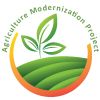This activity envisions the implementation of targeted training programs for the predefined structure of managers and users of the vegetable sorting and storage center, as well as the logistics and distribution platform in Skopje.
These trainings, to be delivered by engaged consulting companies, will be based on a real assessment of needs in management, marketing, and post-harvest skills. The goal is to ensure effective management, optimal use of capacities, and achievement of the expected results.
Additionally, internal contractual procedures will be prepared between the future tenant/operator of the platform and its users, strengthening the sustainability of investments and improving the overall organizational framework.
